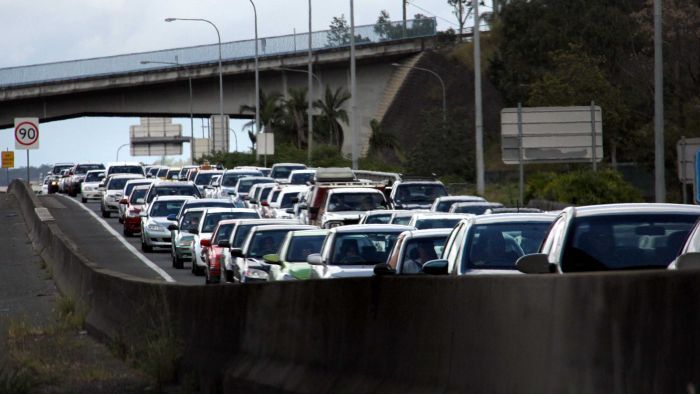
Contractor fined $445,000 after 'rotten egg smell' caused residents 'physical pain'
Updated
A WestConnex contractor has been forced to pay $445,000 for “causing an offensive odour” after failing to properly manage the pungent smells emitted out of a Sydney construction site.
Key points:
- One St Peters resident said the smell was so bad it almost made her vomit
- CPB Contractors pleaded guilty to four offences of “emission of offensive odour”
- It was ordered to send apology letters to residents and publish its offences in major Sydney newspapers
The Land and Environment Court convicted CPB Contractors on Thursday and ordered it to pay $295,000 to the Environmental Trust instead of a fine and $150,000 to the NSW Environment Protection Authority (EPA) for investigative and legal costs.
Between March and July 2017, the EPA investigated 33 community complaints relating to odours being emitted from the St Peters M5 interchange in Sydney’s inner-west.
Prior to their investigation, the authority had received hundreds of complaints from residents and businesses from across St Peters, Alexandria and other nearby suburbs.
One resident, Kate Hafey, said she had smelled a “rotten egg, farty smell” while she was picking up her children from a nearby school which gave her a tight chest feeling, like her throat was closing up.
Another local said the smell was so bad it almost made her vomit, while one woman said it made her believe her colostomy bag had broken, causing her “considerable embarrassment”.
The EPA found the odour was a result of untreated leachate — generated when waste comes in contact with water — or contaminated water pooling at the interchange site.
“[It] caused substantial harm to the community and impacted human health,” EPA regional director metropolitan Giselle Howard said, adding CPB acknowledged in court the harm was foreseeable.
“The odours or smells that came off the construction site were causing physical pain so people were feeling ill.
“They had breathing difficulties including asthma attacks and felt nauseous so it was really awful for these communities.”
The EPA said the construction was occurring over an old tip site and the emissions were released when the builder excavated the contaminated rainwater.
The court had found because CPB was the holder of an environmental protection license throughout the complaint period, it had failed to seek “qualified expert advice” for managing leachate before construction at the interchange.
CPB had pleaded guilty to four offences of “emission of offensive odour” from the construction site and was ordered to send a letter of apology to residents in the area.
The court also ordered the contractor to publish details of the offences in the Australian Financial Review, the Sydney Morning Herald and the Inner West Courier as well as on their social media and website.
The company would also be required to publish the offences in the next annual report of its parent company, CIMIC Group.
CPB has been contacted for comment.
Topics:
business-economics-and-finance,
First posted
